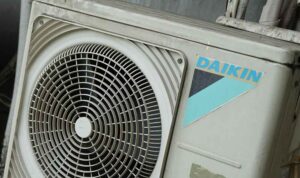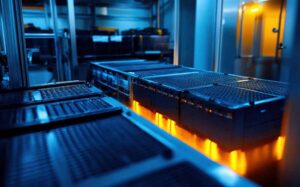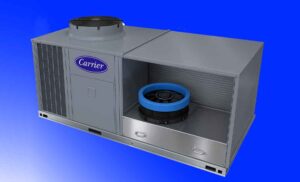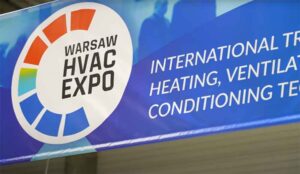Efficient cooling is key to reaching net zero
20th November 2020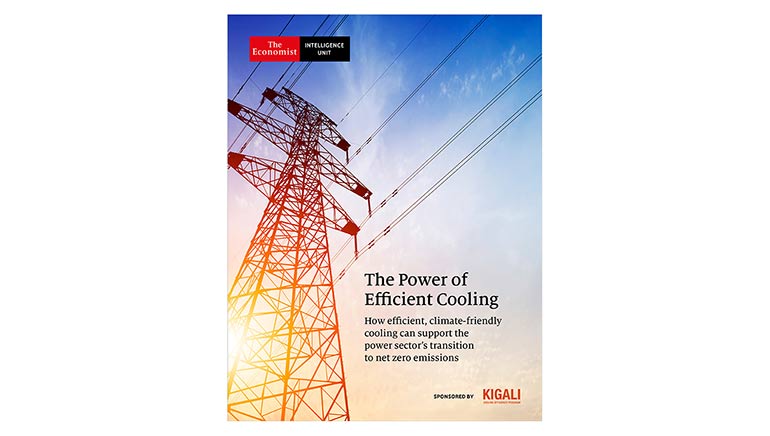
UK: More efficient cooling solutions could save $3.5 trillion in power generation costs over the next ten years, and drive emissions reductions of 7.6GtCO2, a new report says.
The Power of Efficient Cooling, published by the Economist Intelligence Unit (EIU), looks at how efficient, climate-friendly cooling could support the power sector’s transition to net zero emissions. The report, which was commissioned by K-CEP, estimates that without sustainable cooling solutions, countries aiming to reach net zero emissions by 2050 are likely to miss those targets by up to eight years.
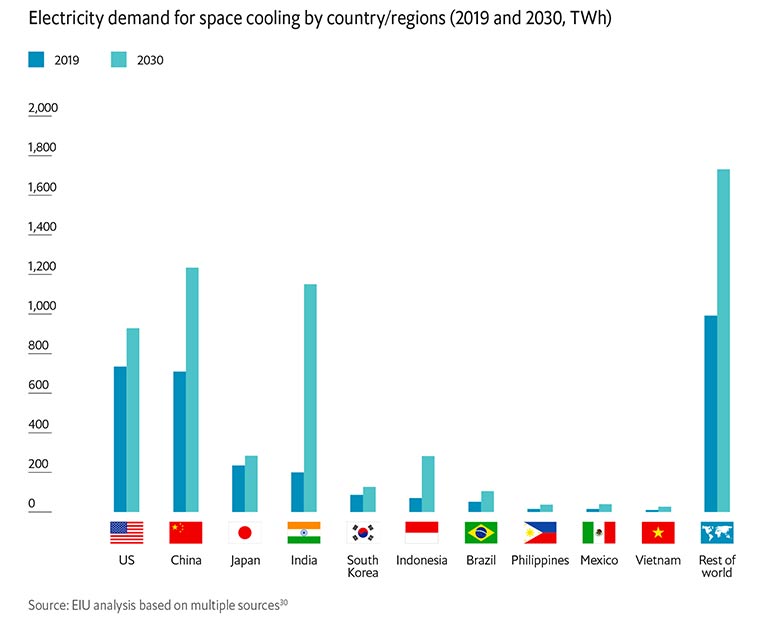
Meeting the energy demand for cooling is projected to cost $4.6 trillion over the next decade and contribute 10.1GtCO2. Even with a shift to renewables, the financial and environmental costs will remain high – $4.5 trillion and 9.2 GtCO2, respectively.
“When delivering energy services like cooling to people and business, there is a tendency to think about expanding energy supply,” said K-CEP non-executive director, Dan Hamza-Goodacre, “but we urgently need to look through the other end of the telescope and think about demand management.”
The EIU’s research finds that focusing on energy demand and ensuring that cooling is more efficient could substantially reduce the financial and environmental costs of the power sector. Installing more efficient air conditioning equipment could save $0.9 trillion and 2GtCO2 by 2030. Of the mitigated emissions, 73% would have come from coal, 23% from gas, and 3% oil.
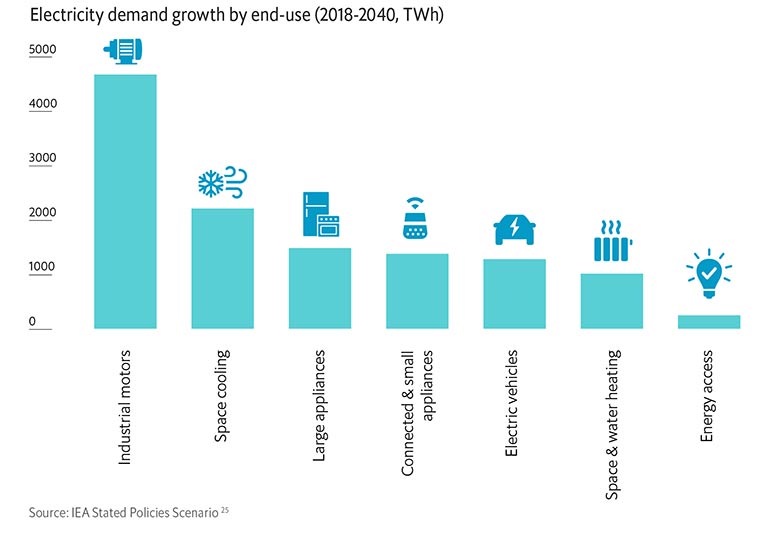
Reducing the overall need for air conditioning with measures like passive cooling or nature-based solutions, for example, could increase these savings to $3.5 trillion and 7.6GtCO2 over the same period. In this scenario, 67% of the mitigated emissions would have come from coal, 29% from gas, and 3% from oil.
“Understanding the financial and environmental costs of different solutions to meeting growing cooling demand is critical to encouraging stakeholders to take action,” commented Diana Hindle Fisher, research analyst at the EIU. “Efficient cooling can expedite the transition to net zero at a lower cost, as well as providing benefits for all stakeholders, including governments, consumers, and the power sector itself, given the right incentives.”
The findings of the report are said to be based on an extensive literature review, an expert interview programme, and econometric modelling conducted by The EIU between July and October 2020.


